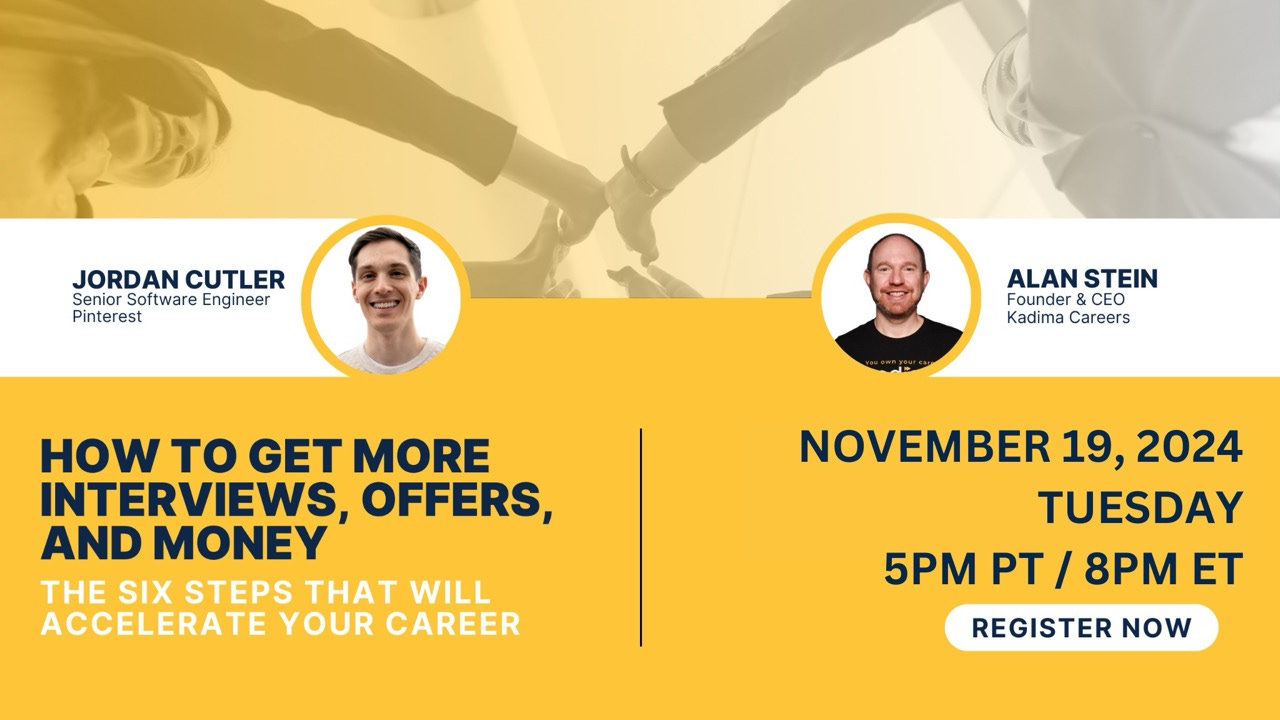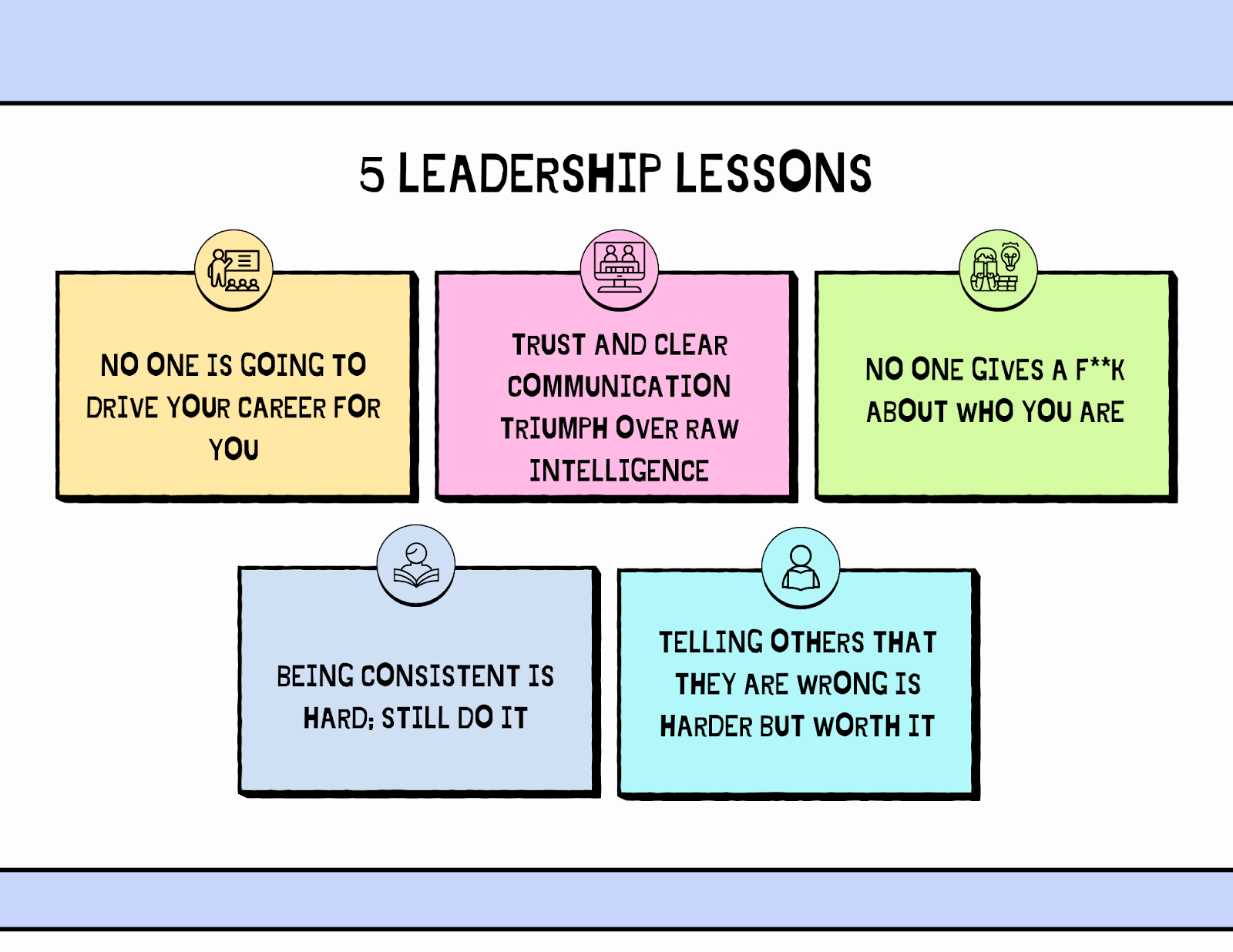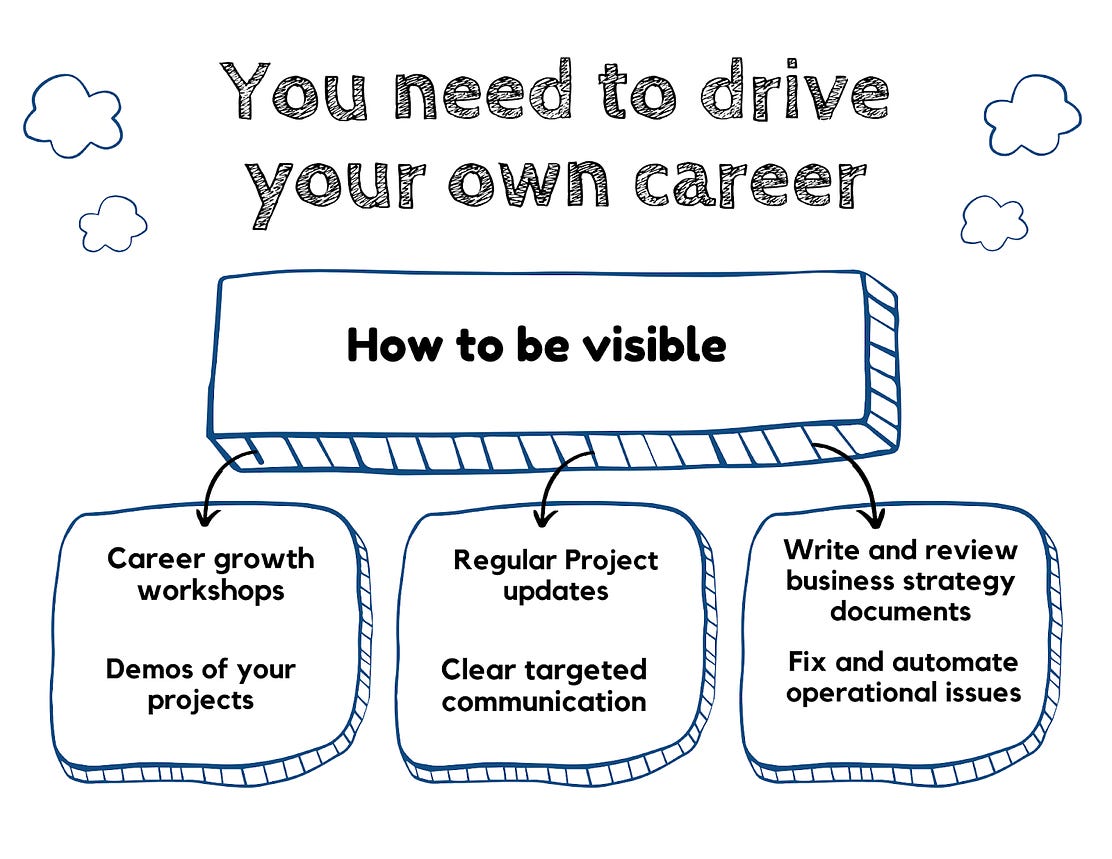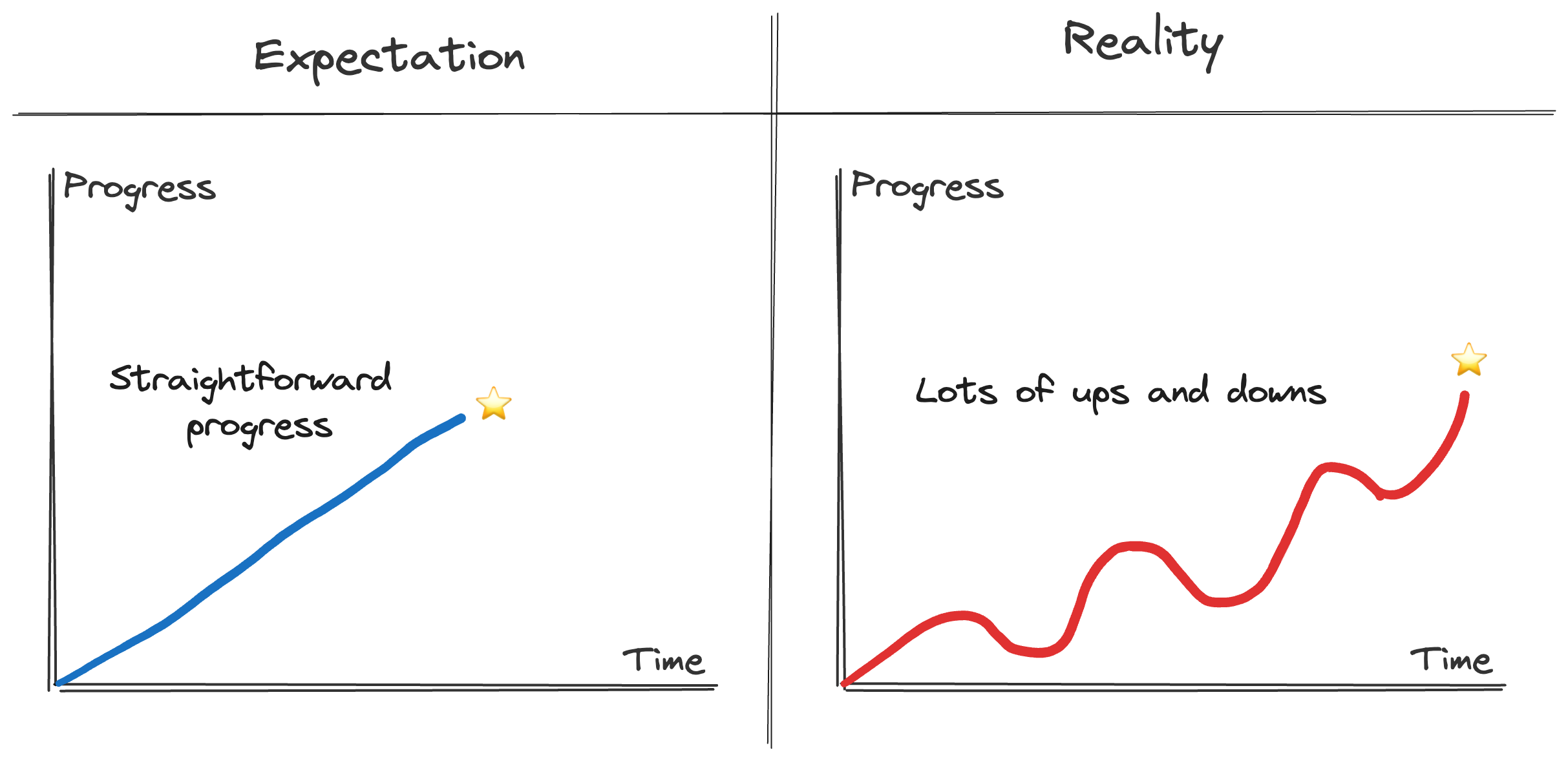Newsletter Title: 5 Lessons I learned the hard way from 10+ years as a software engineer
5 Lessons I learned the hard way from 10+ years as a software engineerGuest post by Staff Engineer, Gourav Khanijoe
📣 Get more interviews, offers, and money (Event)Join me and former Google and Meta executive, Alan Stein, to learn the 6 steps to land a better job quickly, confidently, and with lots more money. You’ll learn how hiring decisions are made from Alan, who has interviewed thousands and hired hundreds of top tech professionals. Bring your questions too! We’ll leave plenty of time for Q&A. Time to dive into this week’s learning! Hi fellow High Growth Engineer, Jordan here 👋 Today’s article features a special guest, Gourav Khanijoe, Staff Engineer and author of The Curious Soul’s Corner. Gourav reached Staff Engineer in just 8 years and overcame huge hardships getting there. In this article, you’ll learn 5 must-know lessons Gourav had to learn the hard way. Without further ado, I’ll pass the mic 🎤 to Gourav 👏 When I was a junior engineer, I asked my cousin, a managing director at a software consultancy firm, “What do you do as a Leader?” He chuckled and joked, “I schmooze my bosses and keep my organization on their toes.” “Oh, that sounds like an interesting and fun job, isn’t it?” I replied. He laughed hard and said, “You’ll come back to me one day and answer that question yourself.” Indeed, he was right. Software engineering leadership, like any other leadership, can be brutal at times. It will challenge you in all aspects of your personality. But it’s also one of the best ways to discover yourself. My journey from a naive software engineer to an engineering leader has been tough. I've faced unexpected challenges and learned hard lessons. In this newsletter edition, I'll share a few key lessons. I hope you'll learn from them to confidently elevate your path to leadership. 👋 Hey there, I am Gourav. I write about Engineering, Productivity, Thought Leadership, and the Mysteries of the mind! 1) No one is going to drive your career for you.When I was a senior engineer working toward my next promotion, my manager told me, “Gourav, I can’t drive your promotion anymore. You have to do it yourself.” I was puzzled. “What kind of manager is he? Hasn’t he handled staff-level promotions before?” I was delivering projects, but I wasn’t demonstrating leadership. I complained about frustrations in secret instead of addressing them openly. This took a toll on my mental health. Then, I did some self-reflection and read “Dare to Lead.” I realized that true leaders don't wait to be saved. They create opportunities for themselves—they provide value, learn, and teach others. No one cares about your career as much as you do. Your leaders have their own challenges. If you don’t take charge of your growth and sell yourself, no one else will. What I changed and what you can learn from it:Beyond just delivering projects, sell yourself and be more visible.
2) Trust and clear communication triumph raw intelligenceDuring a crucial Amazon Prime Day, my code broke, impacting thousands of customers. Yet, leadership still promoted me to senior levels. Why? Because I consistently met stakeholder expectations and communicated proactively during the project’s execution. The proactive communication showed my team I’ll either always make progress or call out when things aren’t going well, which built trust in me as an engineer. In contrast, a supposed 10x engineer struggled. He had poor communication in that he would miss explaining project statuses, didn’t engage, and lacked a track record of success. So, he was dismissed. When there’s no trust, people doubt even good actions. But when people trust you, they see mistakes as chances to learn. For example, if you trust someone, you’ll find reasons to support them when they fail. But without trust, every mistake becomes a reason to criticize. What I changed and what you can learn from it:
All these smaller efforts make it easy for others to trust and work seamlessly with you. Transparency and engaging communication builds trust; silence erodes it. 3) No one gives a f**k about who you areAt my previous company, I was the go-to person for everything, with a reputation for knowing the ins and outs of the business and software. My opinions were highly valued, and I felt like the king of my domain. But, when I joined a new company as a staff engineer, I was shocked to find that no one seemed to care about my suggestions. I assumed my new colleagues would respect my expertise. But, titles and past achievements didn’t matter. No one really cared about my title or opinions until I proved my worth through tangible impact and adjusted to the company’s culture. What I changed and what you can learn from it:
4) Being consistent is hard; still do it.Oh, you’re excited about that high-impact project? Great! But you better keep that excitement going for the long haul. I've had phases where the early excitement of building a team, planning projects, and leading engineers faded after the MVP. Life happened. I got busy with my family, I bought a new house, I had to get in shape because my blood report wasn't great. At work, priorities shifted. Requirements changed. Engineers got pulled off. Deadlines creeped up. Still, I needed to field tough questions from leadership and answer credibly. Being consistent shows you’re reliable, which opens doors for future opportunities. For example, when I had to switch companies, my ex-leaders remembered my perseverance at work and reached out to me for the opportunities they had in their organizations. How I made consistency a habit:Consistency is all about making things easier to work with. When you operate with smart tactics that help you make progress, you naturally become consistent.
5) Telling others (especially leadership) that they are wrong is harder but worth itLet me take you to a time I had to speak up in a high-stakes leadership meeting. The Principal Engineer and Senior Manager in my org proposed a design decision in a 6-page document elaborating a long-haul re-architecture of a complex product serving millions of customers in production. In my view, it was heading in the wrong direction due to the overly complex solutions mentioned in the document. It wasn't easy, but I knew I had to step up and tell them they were wrong. My palms were sweaty, my heart raced, but I gathered my courage and did it. It was a tough crowd, and the stakes were high, but the alternative—watching the project fail—wasn’t an option. I spoke up with the details of how I experimented with a different, yet efficient solution that could solve the problem much faster. In my case, instead of being confrontational, I informed them politely:
To my surprise, everyone appreciated my input and gave me the opportunity to lead the project. I learned that when you need to challenge a decision, do it with humility, and a genuine desire to find the best solution by providing strong data points. 📖 TL;DR
🙏 Thank you to GouravJordan here again 👋 Thank you to Gourav for sharing these hard-earned lessons. I loved being put in Gourav’s shoes each time and the actionable tips that went with each one. To learn more from Gourav, check out his newsletter, The Curious Soul’s Corner. 👏 Shout-outs of the week
Thank you for being a continued supporter, reader, and for your help in growing to 78k+ subscribers 🙏 Next week, I’ll share communication frameworks and mindset shifts you can use as an engineer to build your presence and influence—with real-world examples. Head here so you don’t miss it! You can also hit the like ❤️ button at the bottom of this email to help support me or share this with a friend to get referral rewards. It helps me a ton!
© 2024 Jordan Cutler |





